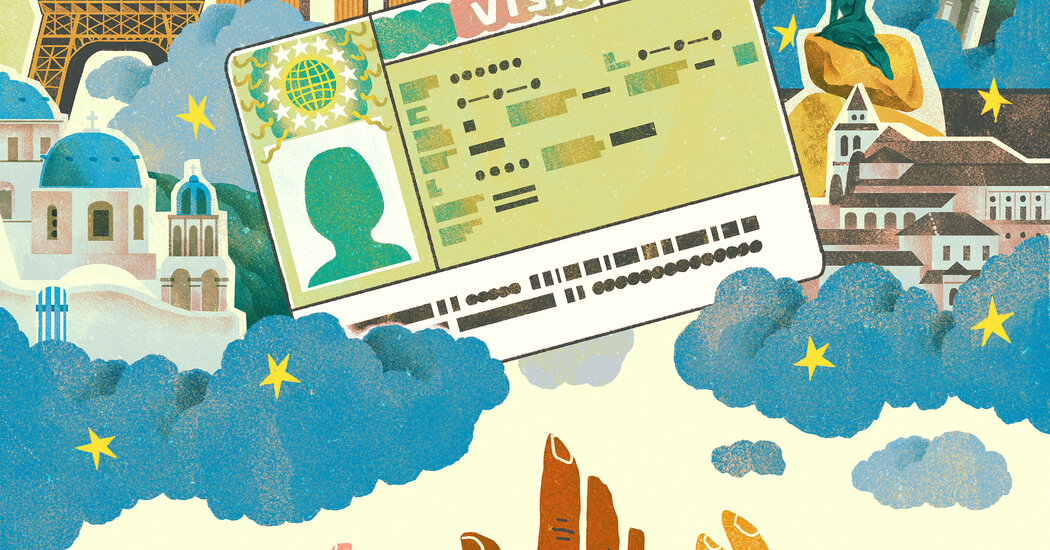For most travelers from the United States, going to Europe is a relatively smooth experience, without the need to apply for visas or pay steep fees for short visits.
But for people like Duygu Yildirim, that isn’t the case. Ms. Yildirim, 36, holds a Turkish passport and lives in Knoxville, Tenn. Within Europe’s Schengen Area, a border-free zone allowing free movement among 27 European countries, citizens of Turkey and dozens of other countries, including India, South Africa and China, must apply for visas for stays of fewer than 90 days.
The application process is expensive, anxiety-inducing and time-consuming. For every visit to Europe, the visa costs 80 euros (about $85) and requires an in-person appointment as well as hard copies of various legal documents. These appointments, usually outsourced to for-profit companies, have been scarce in recent months. Travelers say that it’s also taking longer than the typical three-week period — in some cases, several months — to get a visa in hand. Applicants have failed to receive visas in time for their trips, or receive visas for the full duration of their travel. Some have even been denied visas altogether.
Ms. Yildirim, an assistant professor, said that she had applied for at least 10 Schengen visas in recent years. There are no visa centers in her area, forcing her to travel to other states for hard-to-find appointments.
For an upcoming academic workshop in Belgium, Ms. Yildirim wrote a letter requesting a short-stay visa of at least several months. That would allow her to make future work trips to Europe without the appointment hassle and save her additional fees. But Belgium gave her a visa for just five days, barely longer than her three-day workshop.
“You will never know whether you’ll get one month or six months; it’s very arbitrary,” she said.
“Financially and emotionally, it’s very stressful. I am jealous that people might to go to Europe for two days and come back. I don’t have this luxury,” Ms. Yildirim said.
Those caught up in these visa woes have been forced to change plans, or like Ms. Yildirim, forgo travel to Europe altogether. The bureaucratic red tape has not only caused planning headaches, but also spotlighted an uncomfortable reality: that these fees and inconveniences target a specific group of people — the billions of people around the world who have had systematic unequal opportunities and access to travel, largely those living in the Global South.
Elaine, who…
Click Here to Read the Full Original Article at NYT > Travel…
